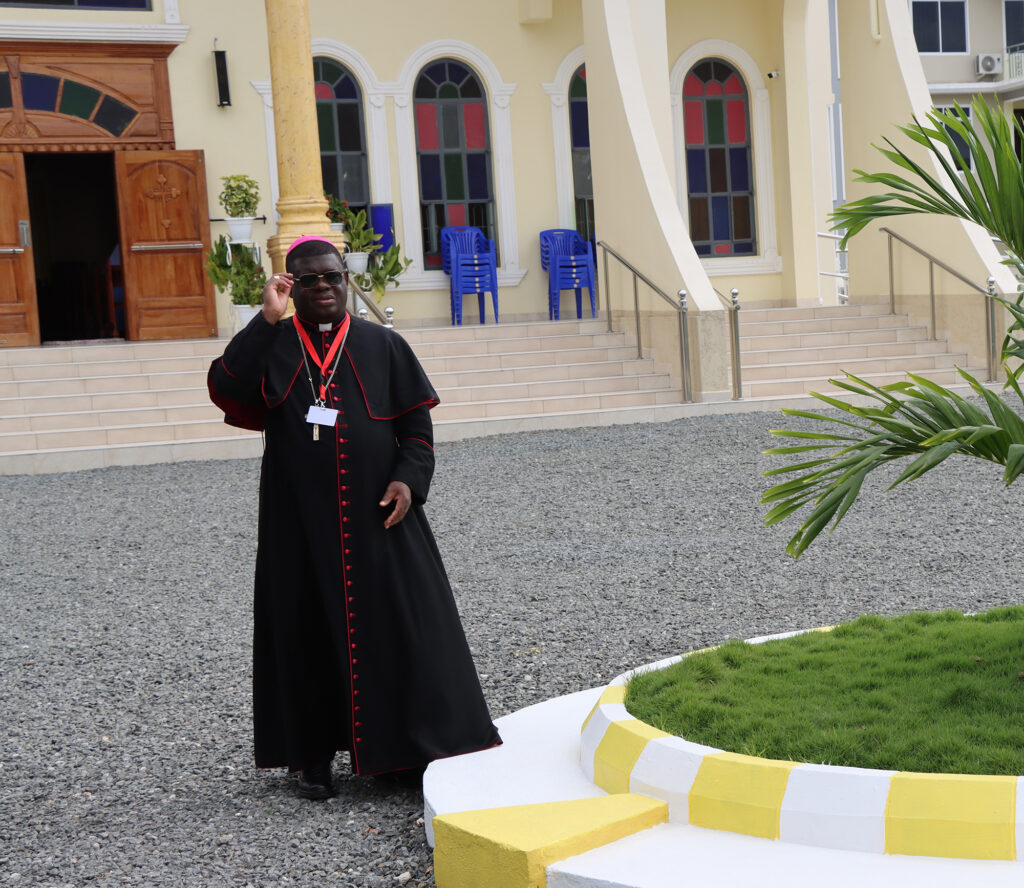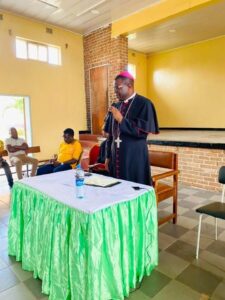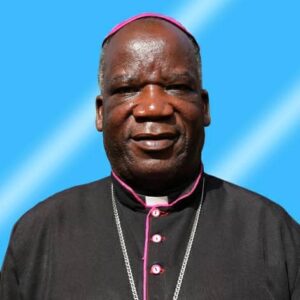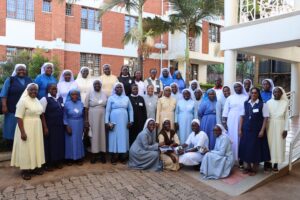AMECEA PLENARY: AMECEA Chairman Calls on Bishops to Review Resolutions of Previous Plenary Assembly

Bishop Charles Sampa Kasonde, chairman of AMECEA since July 2018
Sr. Jecinter Antoinette Okoth, FSSA
At the commencement of the business session of the 20th plenary assembly of the Association of Member Episcopal Conferences in Eastern Africa (AMECEA), the chairman of the association has asked bishops from the member conferences and affiliate countries, to take their time and review the resolutions of the 19th assembly held in Addis Ababa, Ethiopia in 2018.
In an interview with AMECEA Online after addressing the bishops Thursday, July 14, Bishop Charles Sampa Kasonde who has been chairman of AMECEA since July 2018 said: “The business session calls on the bishops to review what they were committed to from the resolutions of the previous plenary assembly which in this case is the 19th plenary assembly.”
“It is very important to note that this business session is to help us review how we have lived, the challenges we faced, the joys and also the failures experienced, but much more we are to focus on the future with hope,” Bishop Kasonde of Solwezi Diocese, Zambia narrated adding that the session is the convocation of the governing council of the region as AMECEA as is it where decisions and resolutions are made.
Besides, the session “gives room to look into matters of importance so that we define the way governance and look at the challenges surrounding us.”
The sitting which allows only the Ordinaries and the extra ordinary members comprising of Secretaries General of the Conferences and AMECEA Heads of Department gives room for presentation of progress reports from various departments and institutions of AMECEA.
“During this session the AMECEA Chairman, Secretary General and other heads of AMECEA Secretariat department including Promotion of Integral Human Department (PIHD), Communications and Pastoral departments make a four-year report from the previous assembly together with Catholic Institutions under AMECEA; the Catholic University of Eastern Africa (CUEA), Gaba Campus Eldoret and Blessed Bakanja AMECEA seminary,” the chairman said.
He highlighted that these reports have a connection with the previous resolutions so the bishops can “see how each department has been part of this journey of Faith as pilgrims and in implementation of the resolutions.”
Moreover, other than the reports, the chairman noted that the session is also a time for electing new leaders to guide the region through the next four years, choose the conference for the next plenary assembly and allow members of that identified conference to come up with a theme that speaks to the Church at the present moment for members to deliberate on the theme and come to agreement.
The business session comes after the study session which articulates the present theme under discussion in this case of the 20th plenary assembly, environmental impact on integral human development
The study session which draws all the participants from member episcopal conferences, the Secretariat of the conference, the representatives of the Catholic Council for the Catholic men, women and youths and other designated representatives from Catholic institutions of learning dissect the theme “so that we understand the components that are involved, the meaning of it, the importance of it and also what we need to do for the implementation to realize benefits for the member episcopal conferences,” Bishop Kasonde said.
He added, “When we discuss together with facilitators who are professionals in that theme for the plenary, they help us to understand, to compare notes and see how well it can be implemented in our dioceses.”
Besides the study session accords opportunity of interaction, exchange of views and enhances understanding of the thematic theme for the plenary assembly.


